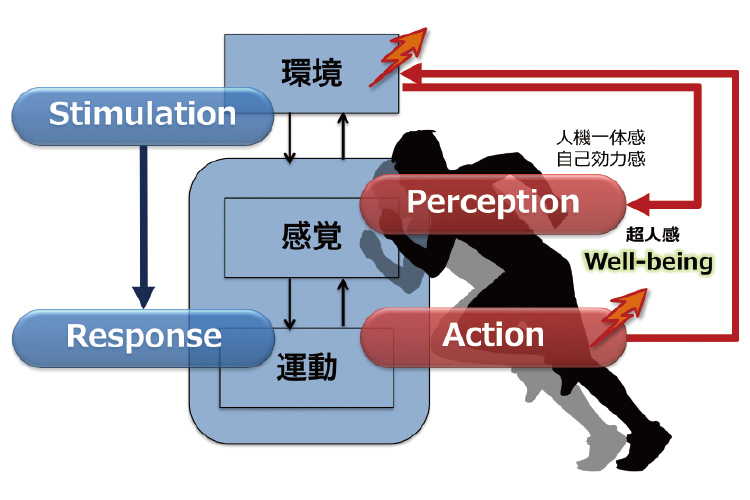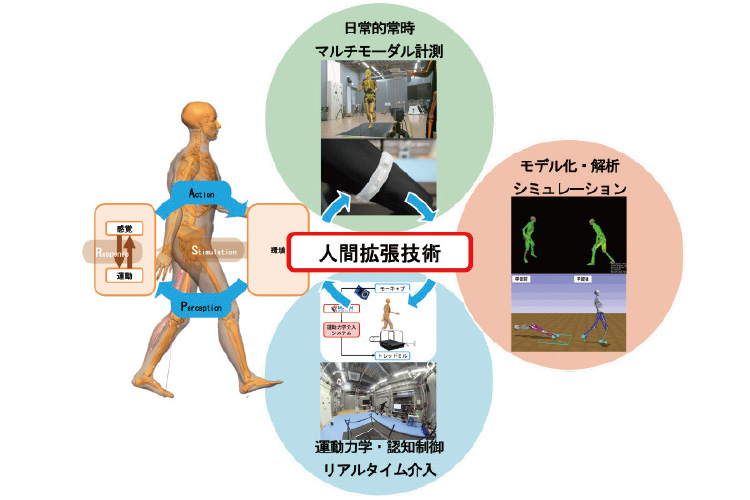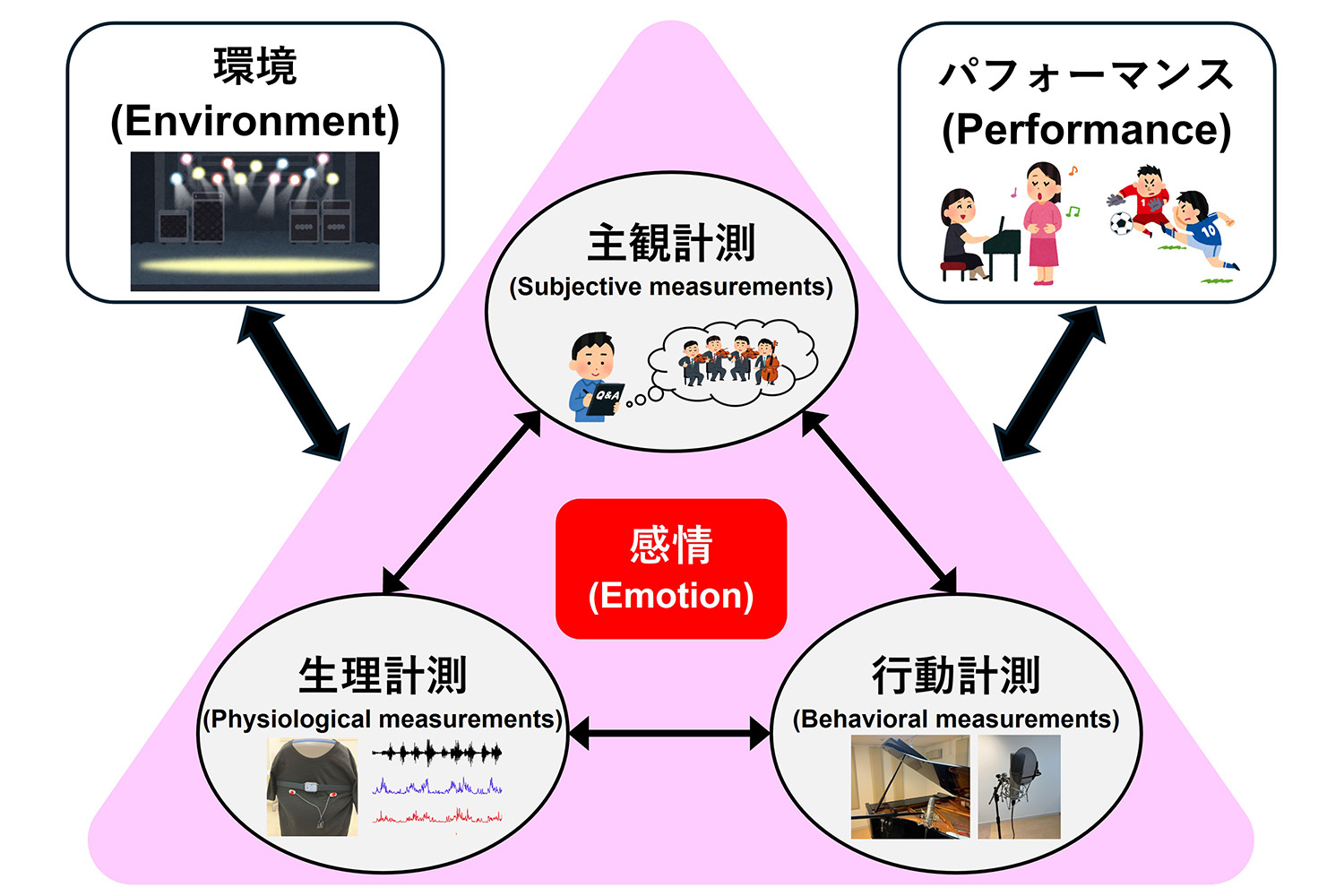Human Augmentation
Research on systems to be attached to human, in order to enhance and empower human functions
By conducting research on wearable sensors, robots, VR devices, and also deeply understanding human sensation, dynamics and psychological functions, we aim for realizing systems to be attached to human, in order to enhance and empower human functions.
Faculty Members

- MOCHIMARU Masaaki
- Visiting Professor
Human augmentation is a new research field for enhancement of physical and psychological functions of humans through wearable sensors, VR / AR, robots, etc. In our laboratory, elemental technologies are integrated for improving physical ability, willingness to continue, and cognitive ability based on an active model (Action-Perception) in which a person changes the environment by his / her own actions with augmented ability and perceives the change. The Human Augmentation Laboratory has been established in the AIST Kashiwa Center at the Kashiwa II Campus, and three researchers belonging to Research Institute on Human and Societal Augmentation (RIHSA) of AIST have been assigned as visiting professors. Our research interests are related to nursing care, health, and work situations. We set concrete research topics through collaboration with companies and medical institutions. Moreover, our research interests involve enhancing performance in sport, music, and games.


- MURAI Akihiko
- Visiting Associate Professor
Human augmentation technology augments human motor and sensory capabilities by designing their interactions. This technology consists of ① daily multimodal measurement, ② modeling, analysis, and simulation, and ③ kinodynamic / cognitive control and real-time intervention. ① involves a development of human measurement technology using an image recognition by machine learning technology and wearable devices using flexible sensors, ② involves a development of musculoskeletal knodynamic analysis technology based on biomechanics and motion generation technology using deep learning technology, and ③ involves a development of real-time intervention system using environmental kinodynamic / cognitive control based on robotics technology. Real-time loop of ①-②-③ would modify human behaviors and realize human augmentation technology.


- YOSHIE Michiko
- Visiting Associate Professor
Our surrounding environment evokes different emotions, which in turn influence our voluntary actions. For example, the existence of an evaluative audience induces performance anxiety that can lead athletes or musicians to falter at a critical moment. We investigate psychophysiological mechanisms underlying the effects of emotions on voluntary actions, focusing especially on fine motor skills such as music and sport. Our research approach includes subjective measurements (e.g., questionnaires, semi-structured interviews), physiological measurements (e.g., autonomic activity, muscular activity, brain activity), and behavioral measurements (e.g., motor performance, artistic performance). Our goal is to develop human augmentation technologies that help us modulate emotional states and achieve optimal performance in our daily lives.
